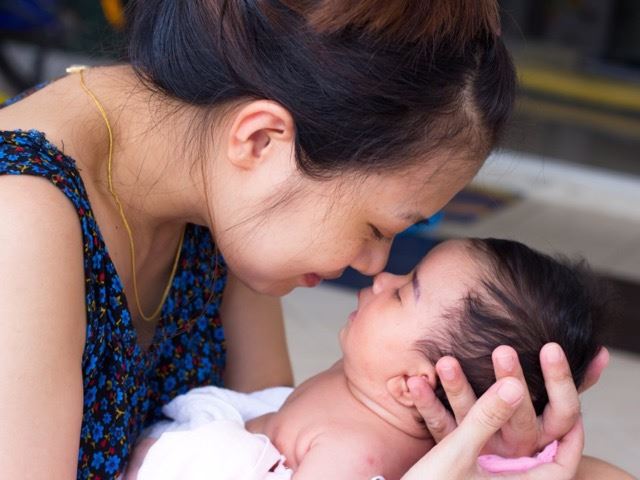Why do people tend to use “baby talk” when speaking to small children. Babies are cute and so we talk in a sweet voice, it’s as simple as that, right?
Linguists at the University of Edinburgh conducted a lengthy study to see whether or not baby talk has an effect on how a child learns a language and discovered that, surprisingly, speaking in dumbed-down tones and sing-songy words actually have a real purpose.
The study—which is somewhat humorously titled “Why ‘Choo-Choo’ is better than ‘Train’—followed 47 infants between the ages of 9 months and 21 months. The researchers studied how their parents spoke to the children and tallied the amount of cutesy “baby talk” phrases, such as words ending in “y” (mommy, doggy, etc.) and repetitious words like the aforementioned “choo-choo.”
The study revealed that infants who are exposed to more of these simple words tend to grasp language better than those who weren’t. The researchers checked the vocabularies of the children at the beginning, the halfway point, and end of the study and found the trend to be consistent.
The study tells us that baby talk is easier to understand for infants due to its repetitious nature. “Choo-choo” for example is a doubled-up word that is easier for developing minds to grasp while ending many different words with the same sound such as “y” helps them identify essential words and learn them quicker.
It is amazing that humans have instinctually developed baby talk as a way of communicating with infants despite not knowing exactly why we’re doing it. We're not taught to talk to babies in this way, it comes naturally, and that’s good.
Originally posted by NY Times
